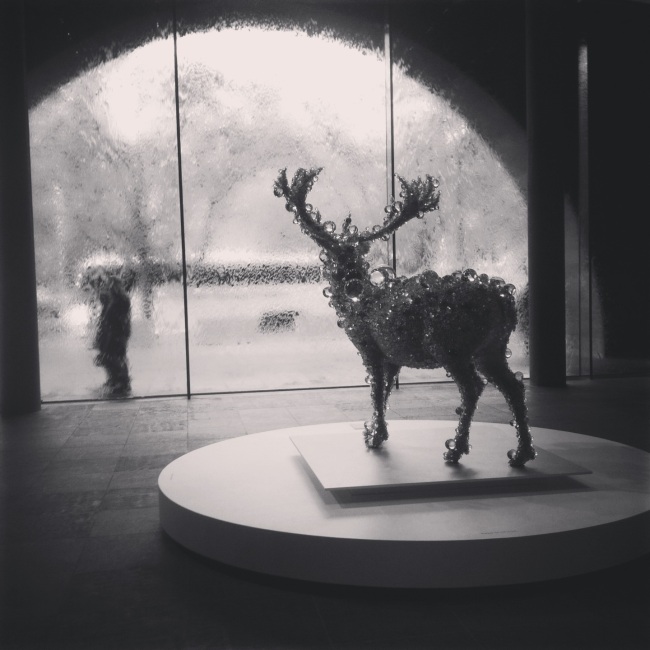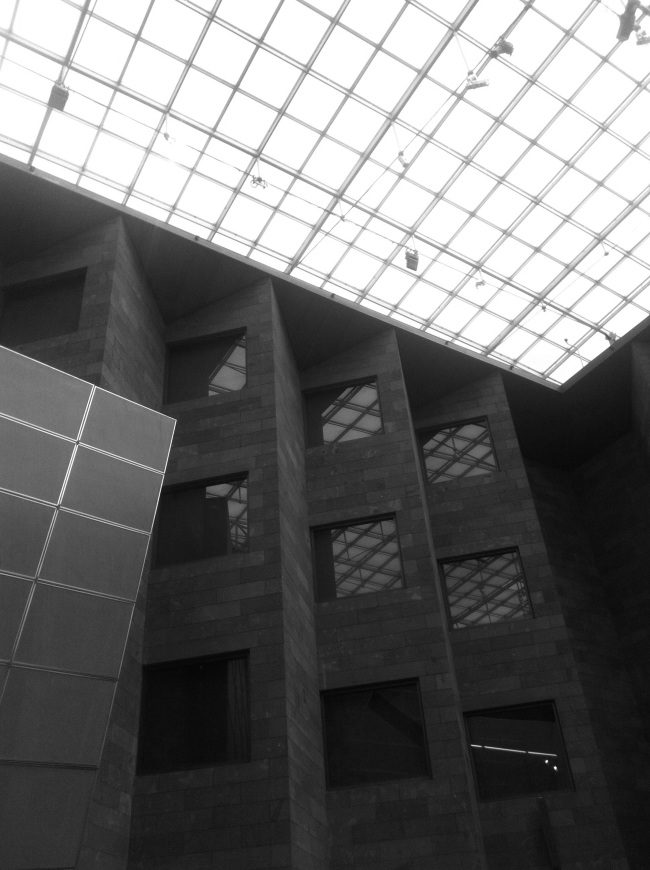"‘What of art?’
‘It is a malady.’
‘Love?’
‘An illusion.’
‘Religion?’
‘A fashionable substitute for belief.’
‘You are a sceptic.’
‘Never! Scepticism is the beginning of faith.’
‘What are you?’
‘To define is to limit.’"
Oscar Wilde, The Picture of Dorian Gray
[caption id="attachment_111" align="aligncenter" width="600"]
 Claude Monet "Water Lilies, Evening Effect" 1899[/caption]
Claude Monet "Water Lilies, Evening Effect" 1899[/caption]I like rainy days. Ironically, the arch shaped entrance to the National Gallery of Victoria is itself shielded with a cascading water-wall, which was where I spent my rainy day. I particularly like rainy gallery days, mostly due to that cosy feeling of being in a warm gallery when its bone-chillingly cold outside.
The NGV's latest major exhibition featured the intriguing impressionist works of Monet, whose infamous garden was made tribute. My knowledge of Monet was close to inexistent, I mean I knew he painted waterlilies right? Although, monsieur Claude Monet did more than just paint waterlilies. For Monet, [who oddly enough resembled some sort of garden gnome himself], his garden was his passion, a passion which he strived to fully understand through his canvas.
For the viewer, his intrigue seems to unfold into an obsession. Fond of painting the exact same scene in different times of the day, Monet's obsession stemmed from a desire to constantly capture the shifting light. In a reflected mirage of pale pinks, soft blues, yellows and foggy greens of many of his creations make for a soothing calmness. Each one of the beautiful pictures was hung at just the right height, each in a ornate golden frame. It was nice to sit on the chairs and look at these works, to sit on the chairs and look at people wandering by and looking at these works, to sit on the chairs and be surrounded by art. Organised within a chronological order, Monet's paintings worked as artefacts, telling the story of his life.
Like any gardening enthusiast, the bond formed with Monet and his Garden is one of intrigue, as he allows himself to be consumed by it's waterlilies, willows and overgrown greenery. There is an underlying feeling of purpose. That Monet saw it as his purpose to be the "painter to flowers" (as expressed by himself). It is true that having a sense of purpose is an essential thing in ones life, and Monet found his calling. Before this turns into a full-fledged self-help post, you may like to know that I left the gallery feeling extra serene, and cultured.
"I am following Nature without being able to grasp her, I perhaps owe having become a painter to flowers"
- Claude Monet
with love.


0 comments:
Post a Comment